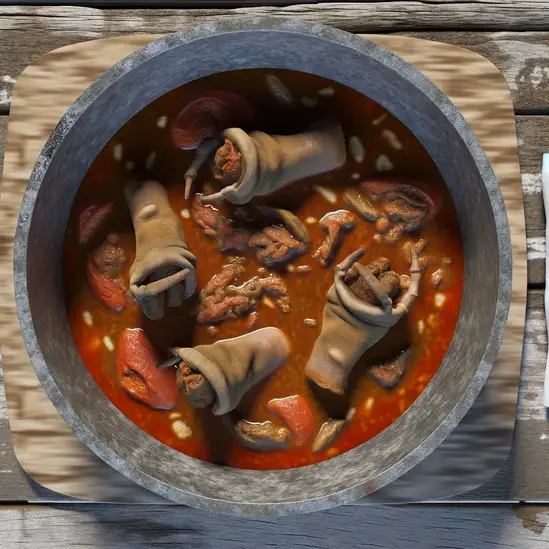



If you ever find yourself dreaming of a place where the Mediterranean sun kisses ancient stone streets and the salty breeze carries the laughter of locals,Bastia is that kind of city. It’s a lively port town on the rugged island of Corsica,where history and everyday life blend effortlessly. Walking through its narrow alleys,you’ll hear the melodic chatter of Corsican dialect mingling with the clinking of glasses from cozy cafés spilling onto the piazza. The scent of fresh seafood grilling nearby and the faint aroma of wild herbs from the hills create an intoxicating welcome. Bastia’s character is a beautiful mix of old-world charm and vibrant energy. The old harbor,with its colorful fishing boats bobbing gently,invites you to linger and watch the world go by. Nearby,the baroque churches and weathered stone buildings tell stories of centuries past,while the bustling markets burst with local flavors—ripe figs,tangy cheeses,and the unmistakable punch of Corsican honey. It’s a place where you can savor a glass of muscat wine as the sun dips behind the mountains,painting the sky in shades of pink and gold. What makes Bastia truly special is its warmth—both in the climate and the people. The locals have a relaxed,welcoming spirit that makes you feel like you’re part of their daily rhythm,whether you’re sharing a meal or simply soaking in the vibrant street life. It’s a city that invites you to slow down,breathe deeply,and fall in love with the simple pleasures of Mediterranean living.
The information on this page is currently being reviewed by Tripkliq and should be used as a guide only
Eng word: Hello
Eng pronunciation: bohn-zhoor
Local language: Bonjour
Eng word: Goodbye
Eng pronunciation: oh ruh-vwahr
Local language: Au revoir
Eng word: Thank you
Eng pronunciation: mehr-see
Local language: Merci
Eng word: How much
Eng pronunciation: kohm-byen
Local language: Combien
Eng word: Toilet
Eng pronunciation: twa-let
Local language: Toilettes
Eng word: Help me
Eng pronunciation: eh-deh mwah
Local language: Aidez-moi
Eng word: Yes
Eng pronunciation: wee
Local language: Oui
Eng word: No
Eng pronunciation: noh
Local language: Non
Eng word: Excuse me
Eng pronunciation: ehk-skew-zay mwah
Local language: Excusez-moi
Bastia was founded in 1378 by the Genoese as a fortress to protect their interests on the island of Corsica. The name 'Bastia' itself is derived from the Italian word 'bastiglia,' meaning 'fortress.'
The Citadel of Bastia, also known as Terra Nova, was built in the 15th century. It offers stunning views of the city and the sea, and it houses the Governor's Palace, which is now a museum.
St. Nicholas Square is one of the largest squares in France. It was created in the 19th century and is a popular spot for both locals and tourists to relax and enjoy the beautiful surroundings.
The Old Port of Bastia, known as Vieux Port, is a picturesque harbor that dates back to the 16th century. It is surrounded by charming buildings and is a great place to enjoy fresh seafood.
The Church of St. John the Baptist is the largest church in Corsica. Built in the 17th century, it features two bell towers and a richly decorated interior, making it a must-visit for history and architecture enthusiasts.
Bastia was under Genoese control for several centuries, and their influence is still evident in the city's architecture, culture, and cuisine. The Genoese left a lasting legacy that continues to shape Bastia today.
Napoleon Bonaparte's family had ties to Bastia. His mother, Letizia Ramolino, was born in the city, and the Bonaparte family often visited Bastia. This connection adds a layer of historical intrigue to the city.
The Bastia Cathedral, also known as the Cathedral of St. Mary, was built in the 17th century. It is renowned for its Baroque architecture and beautiful frescoes, making it a significant religious and historical site.
The Governor's Palace, located within the Citadel, was the residence of the Genoese governors. Today, it houses the Museum of Bastia, which offers fascinating exhibits on the city's history and culture.
In Bastia, the most common Power Adaptor is Type C, Type E.



A sweet ricotta pie, often flavored with orange blossom or lemon, representing the island's traditional pastry-making.

A traditional Corsican dish made with sheep's feet and stuffed tripe, slow-cooked in a rich tomato sauce, often served with potatoes.

A hearty wild boar stew, marinated in red wine and cooked with aromatic herbs, typically served with polenta or pasta.

A luxurious dish featuring scrambled eggs with truffles, showcasing the rich flavors of Corsican truffles.

A Corsican chicken fricassee, cooked with olives, tomatoes, and local herbs, offering a taste of the island's rustic cuisine.

Crunchy Corsican biscuits, typically flavored with anise or wine, perfect for a sweet snack or dessert.
If you ever find yourself dreaming of a place where the Mediterranean sun kisses warm,golden stone streets and the scent of salty sea mingles with fresh herbs from nearby markets,Ajaccio is that kind of magic. Walking through its narrow alleys,you’ll hear the gentle hum of locals chatting over espresso,the clink of glasses from cozy cafés,and the distant call of seagulls above the harbor. It’s a city that feels alive but never rushed,where history and everyday life blend effortlessly.
Ajaccio’s charm is deeply tied to its roots—this is Napoleon Bonaparte’s birthplace,and you can feel the weight of history in the grand old buildings and the proud,welcoming spirit of its people. But it’s not just about the past; the city pulses with vibrant Corsican culture. You’ll catch the aroma of freshly baked pastries,the sharp tang of local cheeses,and the sweet,earthy notes of chestnut honey at the markets. Sitting by the waterfront,watching fishing boats bob gently on turquoise waters,you might even taste the freshest seafood you’ve ever had,paired with a glass of crisp Corsican wine.
What really stays with you is the atmosphere—warm,unpretentious,and full of life. Whether you’re wandering the sun-dappled squares,exploring the rugged coastline just beyond the city,or simply savoring a gelato while watching the sunset paint the sky in shades of pink and gold,Ajaccio invites you to slow down and soak it all in. It’s a place that feels like a heartfelt welcome,one you’ll want to return to again and again.
Imagine stepping into a place where the sun seems to linger just a little longer,casting a golden glow over pastel-colored buildings and the sparkling Mediterranean Sea. That’s Nice for you—a city that effortlessly blends the relaxed charm of a seaside town with the vibrant pulse of French culture. Walking along the Promenade des Anglais,you’ll feel the gentle sea breeze on your skin and hear the rhythmic crash of waves mingling with the laughter of locals and tourists alike. The scent of freshly baked baguettes and rich espresso drifts from cozy cafés,inviting you to pause and savor the moment.
Nice has this wonderful rhythm,a mix of old-world elegance and laid-back joie de vivre. The narrow streets of the Old Town buzz with life—vendors calling out their colorful produce,the clinking of glasses in bustling bistros,and the occasional melody from a street musician. It’s a place where you can lose yourself exploring vibrant markets,then find a quiet spot to watch the sunset paint the sky in shades of pink and orange over the harbor.
What really makes Nice stand out is its effortless blend of cultures—French sophistication meets Mediterranean warmth. Whether you’re nibbling on a socca (a chickpea pancake) or sipping rosé at a terrace café,there’s a genuine friendliness that makes you feel like you belong. It’s a city that invites you to slow down,breathe deeply,and soak in the simple pleasures of life by the sea.
Palermo feels like stepping into a vibrant mosaic where every corner hums with life and history. The city’s energy is a mix of old-world charm and raw,bustling street scenes—imagine narrow alleys lined with colorful market stalls,the air thick with the scent of fresh citrus,roasting coffee,and salty sea breeze. As you wander,you’ll hear the lively chatter of locals bargaining over fresh fish and the distant melody of street musicians playing traditional Sicilian tunes. It’s a place where the past and present dance together effortlessly.
What really grabs you about Palermo is its character—gritty yet warm,chaotic yet inviting. The architecture tells stories of centuries,from the intricate Arab-Norman palaces to the baroque churches that seem to glow in the golden afternoon light. But it’s not just about sights; it’s the feeling of sitting at a tiny trattoria,savoring arancini that crackle with every bite or a plate of pasta alla Norma bursting with fresh tomatoes and ricotta salata,while the world buzzes around you.
Palermo’s soul is in its people and their love for life,food,and tradition. Whether you’re exploring the vibrant markets like Ballarò or soaking in the sunset over the Mediterranean from the ancient fortress walls,you’ll find a city that invites you to slow down,breathe deeply,and savor every moment. It’s messy,passionate,and utterly unforgettable.
Imagine stepping into a place where the sun kisses ancient stone walls and the salty breeze carries whispers of the Mediterranean—welcome to Cagliari. This Sardinian city pulses with a laid-back charm that feels both timeless and alive. Wander through its narrow,winding streets in the Castello district,where pastel-colored buildings lean into each other,and the scent of fresh bread mingles with the distant hum of the sea. Here,history isn’t just in museums; it’s etched into every corner,from Roman ruins to Byzantine towers,all framed by vibrant bougainvillea spilling over balconies.
As you stroll along Poetto Beach,the soft sand warms your feet while the rhythmic crash of waves invites you to pause and breathe. Cafés spill onto piazzas,where locals sip espresso and chat animatedly,their voices blending with the clinking of glasses filled with crisp Vermentino wine. The markets buzz with life—fresh fish glistens under the sun,ripe tomatoes and fragrant basil tempt your senses,and the aroma of roasted chestnuts lingers in the air.
Cagliari’s soul is a mix of old-world grace and Mediterranean zest. It’s a place where you can lose yourself in art-filled churches,then find yourself again in a lively trattoria,savoring fregola pasta with clams,each bite a celebration of Sardinia’s rich flavors. Visiting here feels like stepping into a warm embrace—inviting,vibrant,and utterly unforgettable.
Marseille 02 pulses with a vibrant energy that feels both timeless and refreshingly alive. As you wander through its streets,you’re greeted by the salty tang of the Mediterranean mingling with the rich aroma of freshly baked bread and sizzling seafood from nearby markets. The sunlight dances off the old stone buildings,casting warm glows on colorful shutters and bustling cafés where locals sip strong coffee and chat animatedly. It’s a place where history and modern life blend effortlessly,creating a rhythm that’s both laid-back and full of surprises.
You’ll hear the lively chatter in French mixed with the occasional splash of other languages,a testament to Marseille’s diverse,welcoming spirit. The sound of waves lapping against the harbor is a constant,soothing backdrop,inviting you to pause and soak in the view of fishing boats bobbing gently alongside sleek yachts. The streets are alive with the scent of herbs and spices from open-air markets,tempting you to taste the city’s famed bouillabaisse or a flaky,buttery pastry from a local boulangerie.
What makes Marseille 02 truly special is its character — a gritty charm softened by warmth and creativity. Street art colors the walls,and small galleries and music venues hum with local talent. It’s a place where you can lose yourself in winding alleys,discover unexpected corners of beauty,and feel the pulse of a city that’s proud of its roots but always looking forward. Trust me,once you’ve felt Marseille’s embrace,you’ll want to come back again and again.
If you find yourself wandering through Olbia,you’ll immediately catch its easygoing,sun-kissed rhythm—a place where the Mediterranean breeze carries the scent of salty sea and blooming bougainvillea right into your soul. It’s not just a city; it’s a warm embrace of Sardinian life,where the old town’s narrow streets hum with the chatter of locals sipping espresso at tiny cafes,and the distant clink of fishing boats returning to the harbor sets a peaceful soundtrack. The light here is something special—golden and soft,perfect for lingering over a glass of Vermentino while watching the sunset paint the sky in shades of coral and lavender.
Olbia’s charm lies in its blend of vibrant energy and laid-back coastal spirit. You’ll find yourself drawn to the lively markets,bursting with fresh olives,fragrant cheeses,and sun-ripened tomatoes,where vendors greet you like an old friend. The city’s history whispers through its Roman ruins and medieval churches,but it’s the everyday moments—the laughter spilling from trattorias,the aroma of freshly baked pane carasau,the feel of warm stone under your fingertips—that truly capture its heart.
And then there’s the sea. Just a short ride away,the crystalline waters of the Costa Smeralda invite you to dive in or simply bask on the shore,while the rugged landscape offers trails that wind through fragrant pine forests and hidden coves. Olbia isn’t just a stop on your trip; it’s a place that lingers with you,a gentle reminder of the simple joys found in sun,sea,and genuine connection.
Scammers may install skimming devices on ATMs to steal card information. Use ATMs in secure locations, such as inside banks, and inspect the machine for tampering.
Individuals may approach tourists asking for donations to fake charities. They often use emotional stories to pressure people into giving money.
Scammers may post fake rental properties or accommodations online, targeting tourists who book in advance. Always use reputable booking platforms and verify the legitimacy of the listing.
Some taxi drivers may take advantage of tourists by not using the meter, taking longer routes, or charging inflated flat rates. Always confirm the fare or ensure the meter is used.
Unlicensed individuals may pose as tour guides and offer overpriced or low-quality tours with little value.
Some restaurants in tourist-heavy areas may charge inflated prices or add hidden fees to the bill. Always check the menu and bill carefully.
Pickpockets often target crowded areas like markets, public transportation, or tourist attractions. They may work in groups to distract and steal from unsuspecting tourists.
Street vendors may sell counterfeit goods, such as fake designer items, or overcharge tourists for low-quality products.
The possession, use, and trafficking of illegal drugs are strictly prohibited in Bastia and throughout France. This includes cannabis, which is illegal for recreational use. Penalties for drug-related offenses can be severe, including fines and imprisonment. France has a zero-tolerance policy towards drug use, and tourists should be aware that even small amounts can lead to legal consequences.
In Bastia, as in the rest of France, smoking is prohibited in all enclosed public spaces, including restaurants, bars, cafes, and public transportation. Smoking is also banned in certain outdoor areas such as school grounds, playgrounds, and public parks where children are present. Designated smoking areas may be available in some places. Violations can result in fines.
Vaping regulations in Bastia follow national French laws. Vaping is banned in enclosed public spaces, including workplaces, public transport, and educational institutions. Some outdoor areas, such as playgrounds and school premises, also prohibit vaping. Designated vaping areas may be available in some locations. Non-compliance can lead to fines.
What are other people saying about Bastia?
Recent Social posts about Bastia
There is nothing to show you for now.